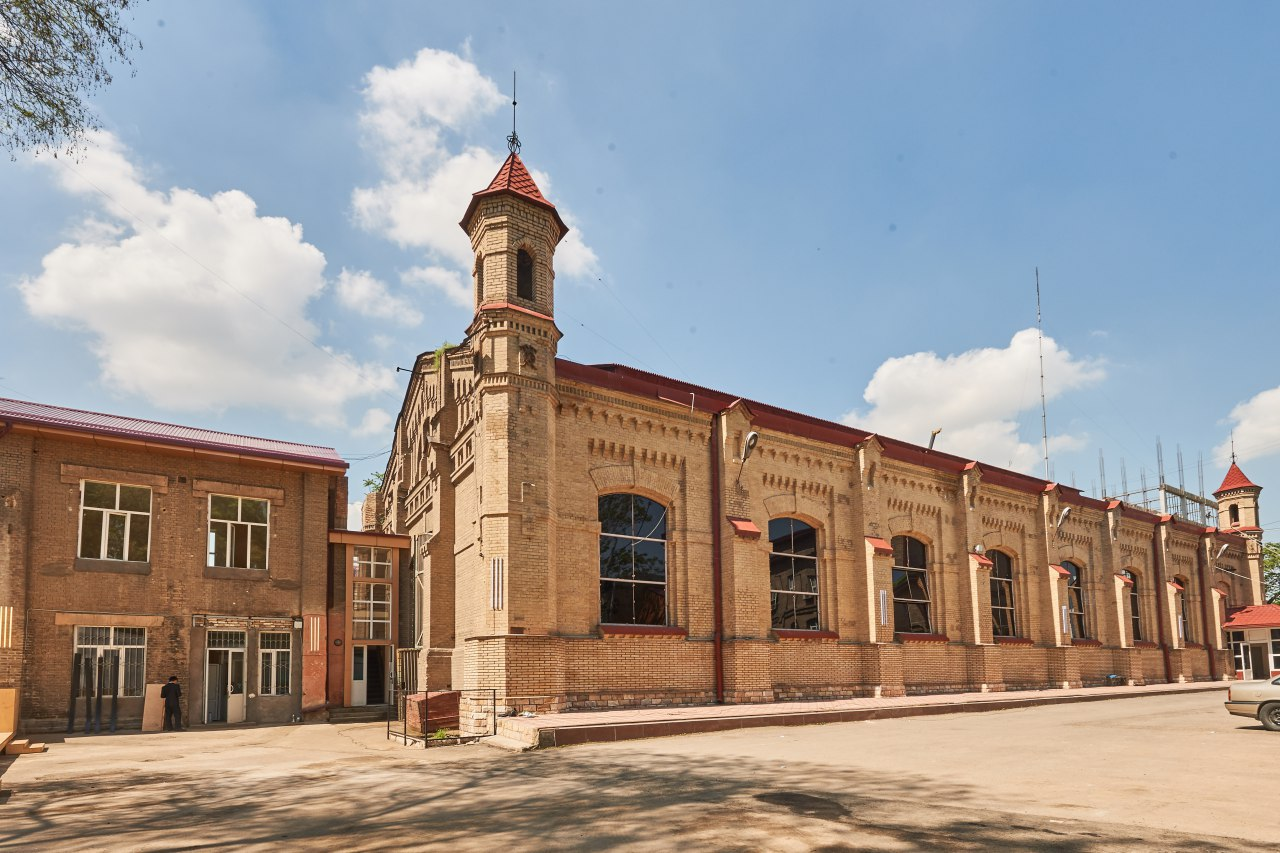CCA Tashkent

Former diesel power plant build in 1912, now the Centre for Contemporary Art, Tashkent.
The Centre for Contemporary Arts in Tashkent is a new space for the development and support of contemporary culture in Central Asia. The building that will soon become the home for The Centre for Contemporary Arts was built in 1912. Before the 1917 Revolution, the venue served as a diesel power station that generated energy for the city’s tram line. This is where the electrification of the city of Tashkent began and where the renewal of Uzbekistan’s contemporary art scene environment will begin. The refurbishment of the building will start in late 2022.
This year, before the restoration commences, CCA Tashkent is operating in test mode: among its first projects is the CCA LAB. Launched in March, the CCA LAB is a research laboratory whose aim is to nourish and develop contemporary art and cultural practices in Uzbekistan, as well as to formulate new readings and understandings of the region’s artistic heritage.
Guided by the expertise of international curators and cultural organizers, CCA LAB’s young participants will gain professional experience working on projects such as Tashkent Encounters, a series of gatherings on film, music, art and performance.